The Past Lives of Piolo Pascual
Jose Rizal’s book “Noli Me Tangere” seems to be a constant in Piolo Pascual’s career. Pascual himself has admitted a personal “attachment” to Rizal’s “Noli,” having even taught it at one time. But his connection to the novel has become more apparent since he played Ibarra — a role that Pascual really fought for — in Lav Diaz’s eight-hour epic, “Hele sa Hiwagang Hapis” in 2016 and last year when he played the titular character in “Ibarra,” a musical reimagining of “Noli” for the stage. He brought this revolutionary spark to Pepe Diokno’s “Gomburza” when he played the Catholic priest Pedro Pelaez, a role that the director insisted could only be played by Pascual.
It’s hard to believe that it’s been five years since we last saw Pascual on the big screen, which was why the double bill of “Mallari” — his first film as a headliner — and “Gomburza” still has him reeling, both from the success and the sheer pressure of delivering excellent performances.
“Sobra ‘yung commitment ni Piolo sa character niya,” director Lav Diaz told CNN Philippines Life in 2016. “Gusto pa nga niya eh. May mga panahon na tinatawagan na siya ng studio, ‘Bumalik ka na dito.’ Sabi niya, ‘Tatapusin ko muna ito.’ Ganun siya. He will sacrifice things para mag-stay.”
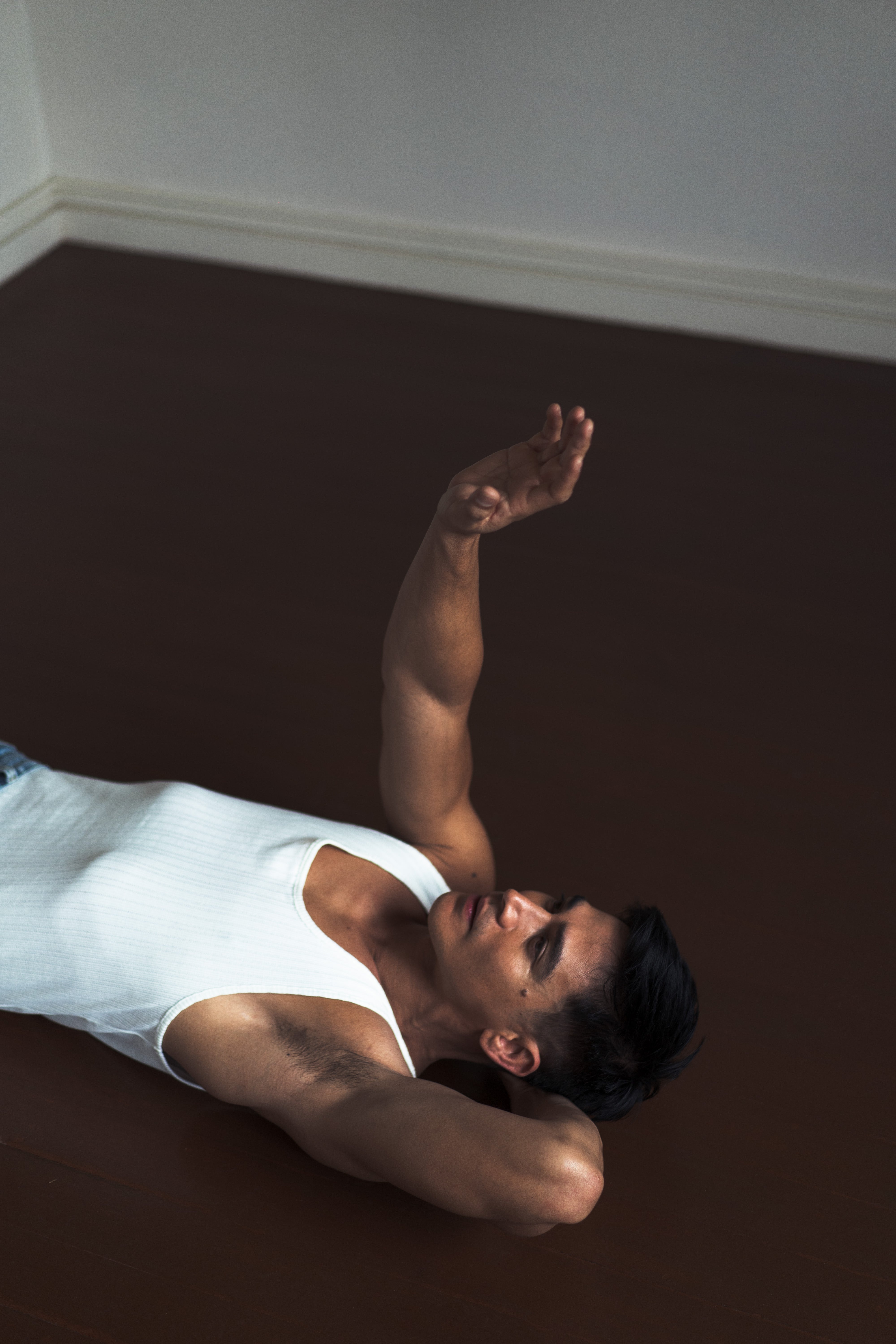
Photo by JL JAVIER
It was on the set of “Hele sa Hiwagang Hapis” where Pascual and “My Amanda” director and co-star Alessandra De Rossi bonded. The Netflix film saw De Rossi and Pascual in an anti-romance film, showcasing how intimacy can also be found in a platonic relationship. The two actors started in showbiz at the same time and have been in each other’s orbits since.
“I wanted to give Piolo an out-of-the-box project,” De Rossi told NME about their 2021 film. “Here, he’s not his usual heartbreaker-Adonis-movie-star self — he’s wearing wifebeaters and a man bun, and he’s cussing a lot.”
The two would later reunite for another Netflix project, the 2023 miniseries “Replacing Chef Chico,” a romantic drama that showcased food and the human emotions that accompanied it. The series, created by Antoinette Jadaone (whose film “Relaks, It’s Just Pag-ibig,” co-directed with Irene Villamor, was produced by Pascual), and directed by Dan Villegas (who directed Pascual in “The Breakup Playlist”) became one of the top shows on Netflix Philippines during its release. It is the first Filipino original series produced by the platform.
Pascual’s exposure to the global streaming game has encouraged him not only as an actor but also as a producer. With films hardly seeing the light of day since the pandemic, the sudden boom of the Metro Manila Film Festival has only fueled his love of performing in and producing films, even if it means giving way to younger actors.
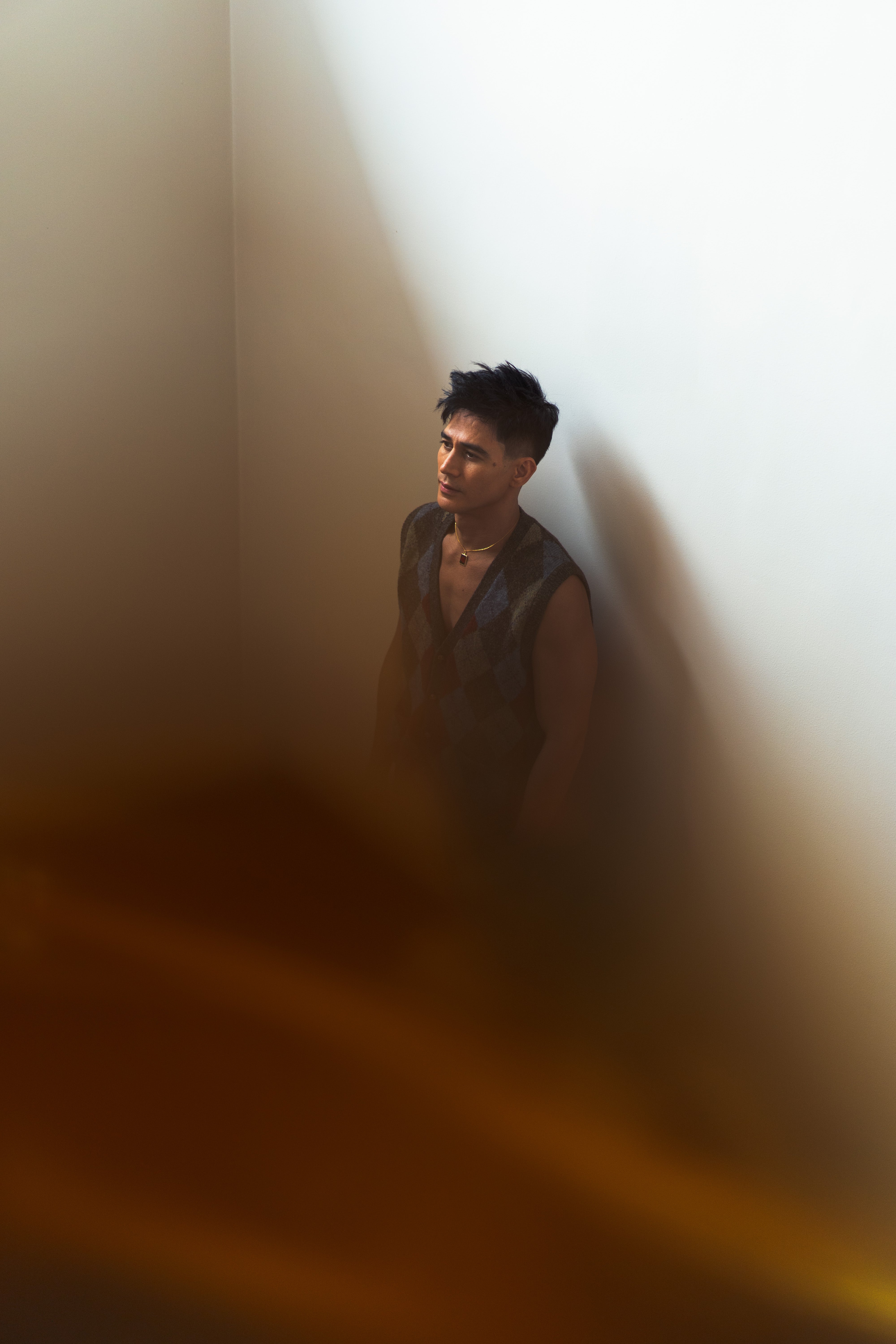
Photo by JL JAVIER
“When Cedrick [Juan] won [MMFF Best Actor for “Gomburza”], I was like, wow,” he says. “I mean, it only goes to show that we should be giving chances to other actors. I've been around for some time now, and it's not gonna hurt if you're able to share. Healthy competition will always be good as long as you know who you are, as long as you know your core. So, with that, it was, it was a humbling experience at the same time, but I felt good for Cedrick. I felt good for the business because it only means that we have room for actors. We have room for other actors who want to break out. So, it's nice to be in that situation wherein it's not always about you. As long as you've given it your all, whatever the people say, whatever the judges decide, I made peace with myself when it comes to awards, whatever accolades, because you don't ask for that. It's a reward.”
Through this final cover story with Pascual, CNN Philippines Life comes full circle to our very first cover with Lav Diaz and the magnificent cast of “Hele sa Hiwagang Hapis,” which, coincidentally, is eight hours (and five minutes) long, while CNN Philippines Life closes after eight years of covering the country’s culture and lifestyle beat. What better way to go out than with Papa P as our last cover subject — an actor whose work ranges the vast wealth of cultural work that the website has reported on for almost a decade.
We sat down for a Zoom call with Pascual for to talk about how he decompresses after long stretches of projects, breaking away from that good boy image, and the things that he still wants to do — following a career that’s already achieved so much.
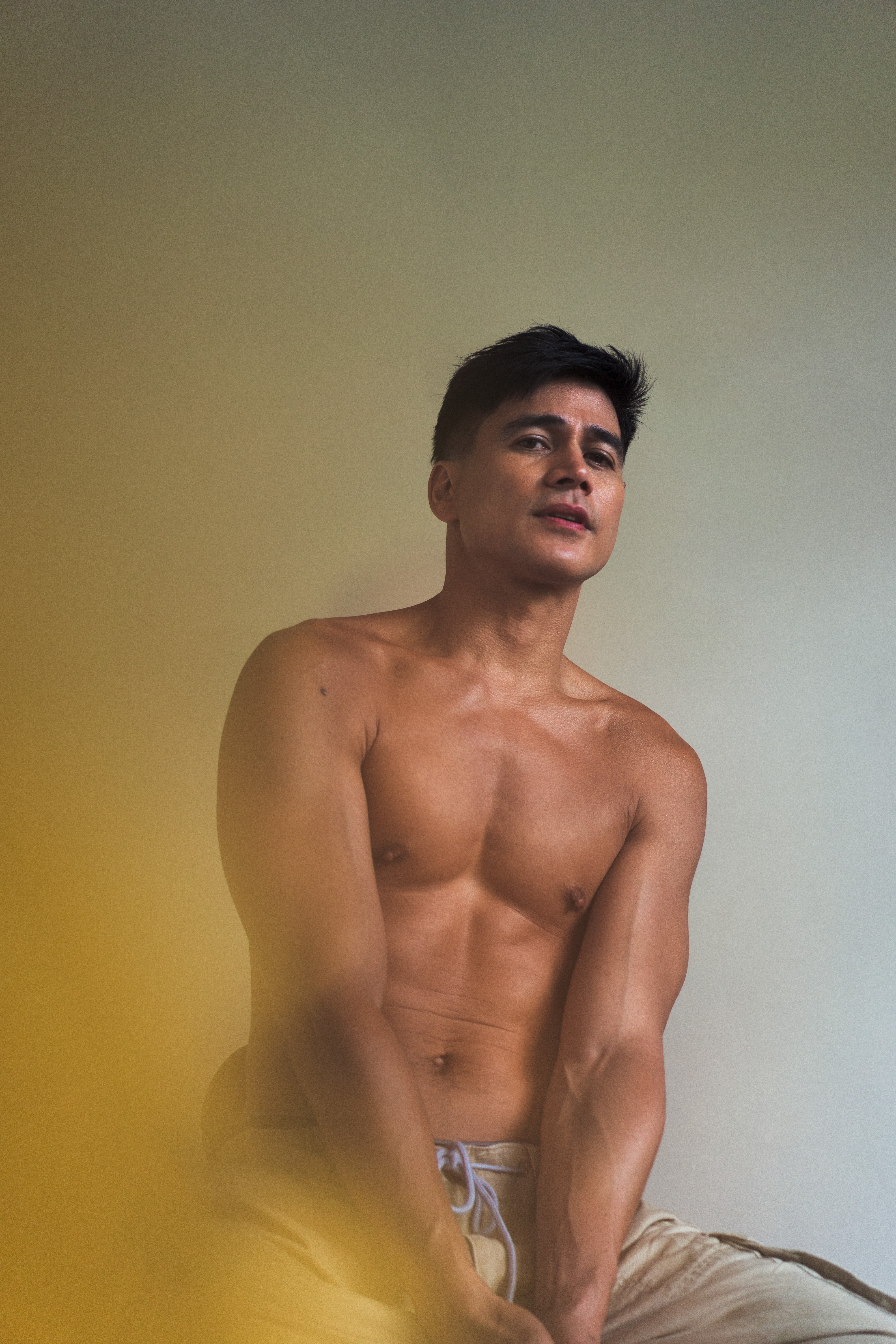
Photo by JL JAVIER
So how have you been since MMFF?
It was a pretty busy, hectic 2023. But I cannot complain. I mean, I never thought I'd be that busy again. It was a heck of a year. You know, good thing I had like a month off. But other than that, work just kept coming in.
I live by the saying “Strike while the iron is hot.” So, I guess I'm still striking, you know, after 25 years. And work has been good, especially because of the emergence of the streaming platforms. Now the playing field is so much bigger because you have so many different options — where to put your content and what else you can do. You're not stuck anymore [with] your good boy image. You're not stuck to doing rom-coms because there's so much demand for new content. So, I'm just happy to be part of this evolution and you know, whatever is happening in the landscape of Philippine entertainment industry.
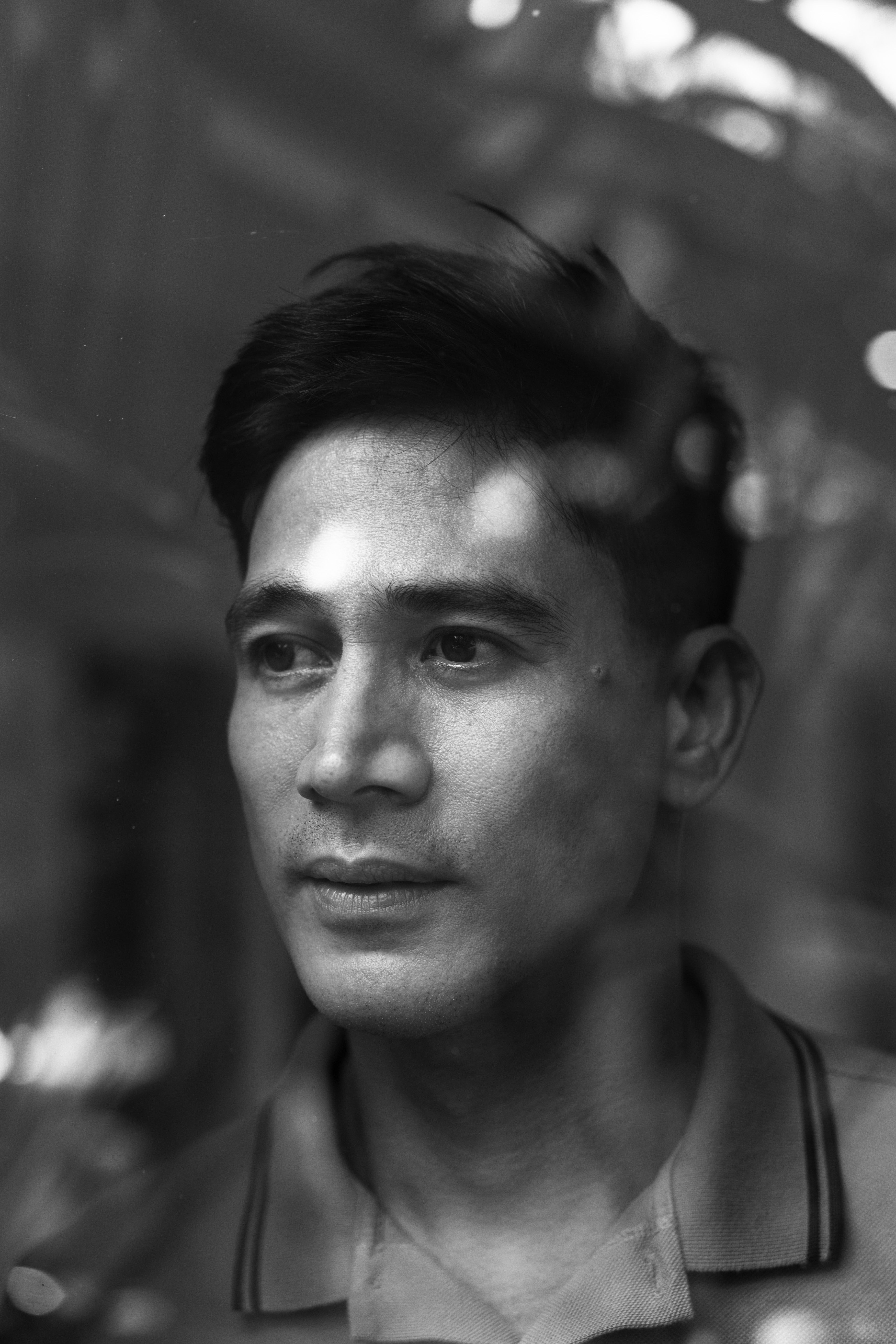
Photo by JL JAVIER
How long has it been since you've taken a break? You said you've taken a break for a month, but how long was the break you've had ever since?
It's a self-imposed break that I have to do just to be able to shake off whatever I've done and then recharge. So, usually, I time it [in the] summer. Summer in the [United] States or Europe, so I can travel around. Two years ago, I did two months. Then last year, I did five weeks. Now, I'm trying to haggle for at least a month. But yeah, I'm already booked up until mid-year. So, I'm just trying to really schedule my month off mid-year just to, I guess, re-calibrate.
It really served me well when I took August off last year. As soon as I got back from my vacation, I was already filming for “Mallari.” And the first day of the shoot, I was doing three characters. Doing the ending. So, if I didn't have that break, I'd be feeling the burnout already. So, for my sanity.
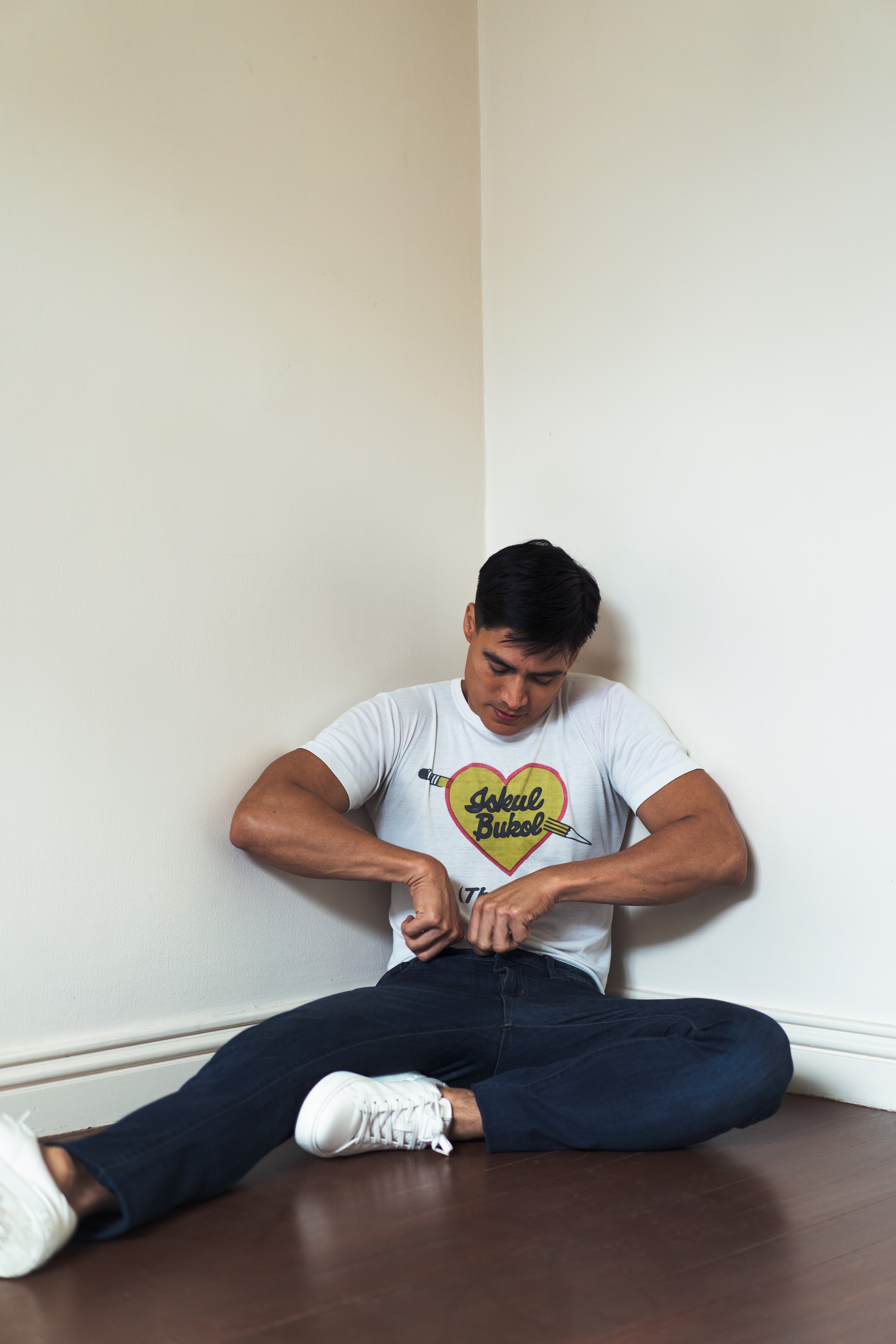
Photo by JL JAVIER
I also read that you really like to travel. What are your favorite countries to travel to?
Last year, I had the chance to go around the Balkans. We went to Montenegro, Albania, Bosnia, and Croatia. I enjoyed seeing the Balkans for the first time. We were just driving around for like two weeks. And then, we also went around Turkey for 10 days and around Spain for 10 days. So, I like to go to places that are off the beaten path, small countries [or] towns that have [fewer] tourists [...] where you get to really enjoy being anonymous and just walk around and explore, know about their culture and architecture. I love landscapes.
I may get a point to go to a place where I've not been. But last year, we were in Cappadocia in Turkey for five days. I went there before for a day. So, I said, I'm gonna come back and spend a couple more days. If I've been to a place and I like [it], I make sure to go back and spend more days there.
So, you already have a list of countries to visit?
Always. It's always my motivation. When I think of doing something, I kind of plan it ahead and do my research. I do my own bookings and all. I buy my tickets. We rent a car. I enjoy doing it… just being in a place that you haven't seen and where you learn so much. And it's a humbling experience as well because you don't [have] a driver, you don't [have] a PA, you do everything yourself. You do your laundry, you do your meals and everything.
I guess [it’s one way of], staying grounded as well. You know, wherein you don't have the luxury of asking someone to do stuff for you. So yeah, I've been practicing that for more than 20 years. But, yeah, I also, when I'm off, like, when I'm doing a tour, I use that time to also discover.
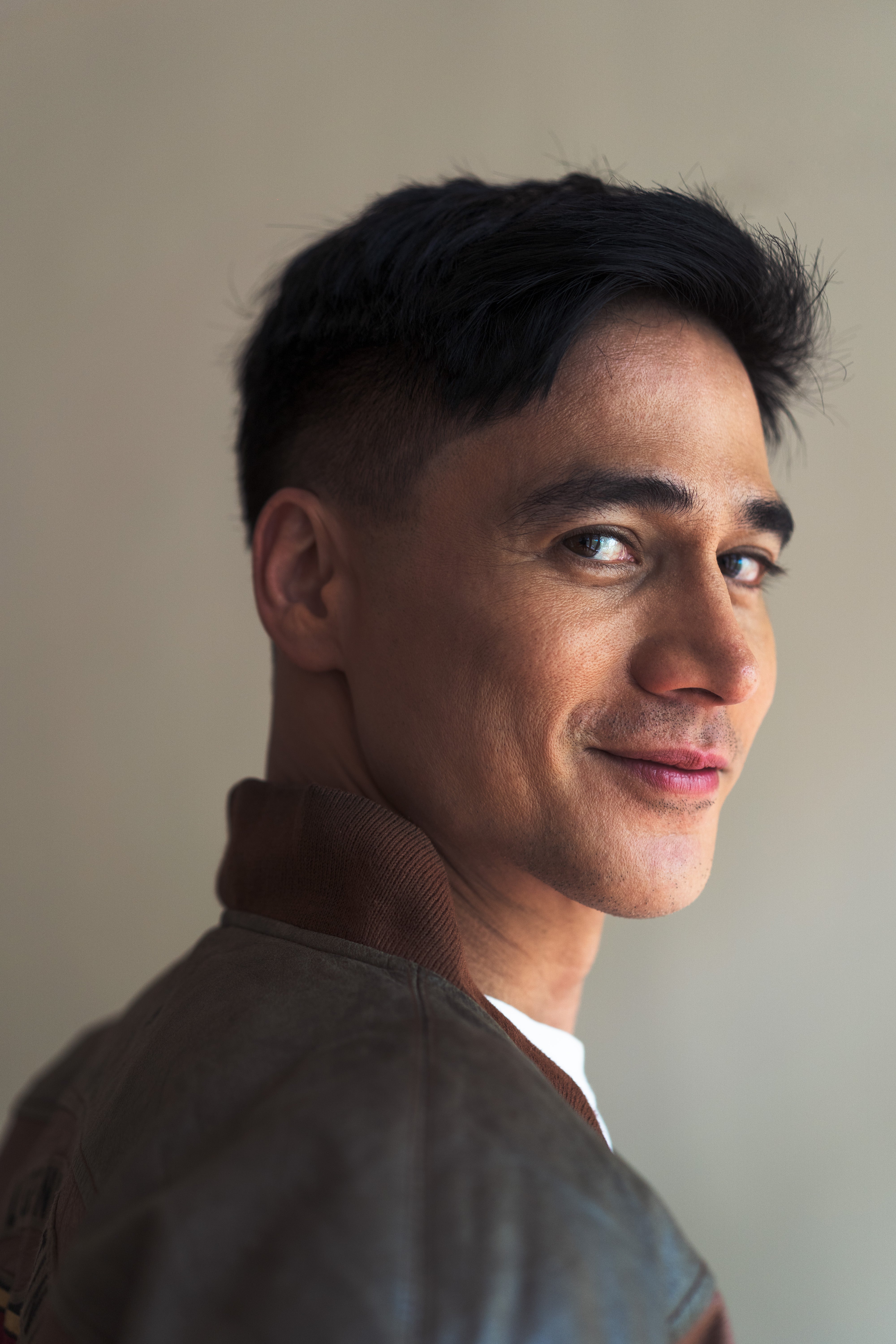
Photo by JL JAVIER
Everyone has been saying that the success of MMFF was really a sign that people are going to the movies again after the pandemic. How has it been for you as as an actor and a producer?
I was there on the 25th, on Christmas Day, on the first day of the festival. It's been like, my gosh, I guess, five years since I last had a movie in a cinema. So, it was a great feeling to see a lot of people flock to the theaters and malls, and watch the movies, Filipino movies to be specific.
I was talking to my friend last night, I was saying, it's nice to be part of this movement, this revolution, because we are really trying to save cinema, Philippine cinema for that matter, and not be limited to streaming. Because, of course it's a different experience when you watch it in the theater.. [it’s] larger than life and everything. So, I'm happy to be part of the festival, you know, as much as it's our way of really going back to our roots and really presenting our culture, our sensibilities as Filipinos.
It's hard [now] because your competition now is very global. You're not just competing with Western films or Western content, but you're also competing with other countries that have more global appeal. So, it's also a hurdle, because if we're not supported by the audience, by the public, then we won't be able to continue doing what we're doing, because in essence, you lose money. But I'm happy with the outcome of the film fest, because at least almost all the films, or if not all, you know, got their investment back. And it only means that, you know, there's hope. There's hope for Philippine cinema.

Photo by JL JAVIER
Next week, we're going to the inaugural MIFF [Manila International Film Festival] LA so, it's also one way to get our traction there. And hopefully, reach more people, not just Filipinos. So, I'm happy to be part of this movement. It’s one thing for people to just go back to the cinemas, because as you may have observed, a lot of cinemas have either closed down or they limit the seating capacity, like before when we were growing up, it's like massive cinemas. So, we want to be able to save that. And because of that, [through] the support of the public, [it] only means that we can continue doing what we're doing as producers.
It's nice to be a producer at this point because there's just so much demand for content. You can do whatever you want, as diverse as possible, because you have a lot of options where you can market it. So, as a producer, I have some films in the pipeline. I have some concepts that we want to develop. But yeah, this is high time for us producers to do something that would empower and champion Philippine cinema, Philippine content for that matter.

Photo by JL JAVIER
What was the first movie you remember watching on the big screen?
Probably “Ang Panday?” I can remember there was an earthquake. That's why I remember that moment. There was an earthquake in Manila, and we were in Greenbelt, and we were watching “Panday” and I was holding my mom. I was probably five or six […] But yeah, it's one of the things that we look forward to — going to the cinema with your family. So it's always a family affair, and that's what I observed last [MMFF]. Like, people were going as a family, friends, barkadas, you know, going as one. And it made me really appreciate what we have. Because, cinema is an expression.
I've been a cinema lover ever since I was a kid. I've always enjoyed watching movies. I guess that's why I became an artist.
Your breakout role was in “Esperanza,” right? With Judy Ann Santos?
It was in “Sa Sandaling Kailangan Mo Ko.” July 1998. I auditioned for a series. It was a miniseries with Marvin Agustin as the lead. And, I auditioned in front of Olivia Lamasan, Inang, and I got the part. But, it's the kontrabida to Marvin's character. I was nominated for the Asian TV Awards. And, then, they put me in “Esperanza,” where I was the stalker of Judy Ann's character and people seemed to like it. They would email ABS — ‘ala pang social media na niyan — and request them for me to be her love team or something like that. So, yeah, that actually started and kicked off my career in the mainstream aspect because they tried out our pairing for a love triangle. It just blew up.
From there, I want to ask you how love teams have been able to push your career forward because, you know, there's been a lot of debate on how love teams are tethering some actors. But how has it been for you?
It's case to case. I mean, you know, it's a tried and tested formula. We root for a certain couple and for them to be together, and it's just how it is. But, for me, I had the privilege of being in a love team and whoever I was with, it's like a pair-up. But, I don't want to say I was stuck in a love team because it really did me well. I was able to break out because of that. And, I guess, we can put it in such a way that it could be a stepping stone if you're starting out. When you’re starting out, it's nice to have somebody with you that you can be paired with and learn with. So then you can grow [and] mature.
I mean, I was in a love team [for] half my career and it wasn't detrimental to my career because I had planning also from my management as to what kind of projects I was going to accept or turn down. So, there was sort of subtle planning on the side. But, yeah, that's your safe space. That's your formula, that's something that would help you become more known and get your fan club or audience rooting for whoever you're with. But, it always works for sure.
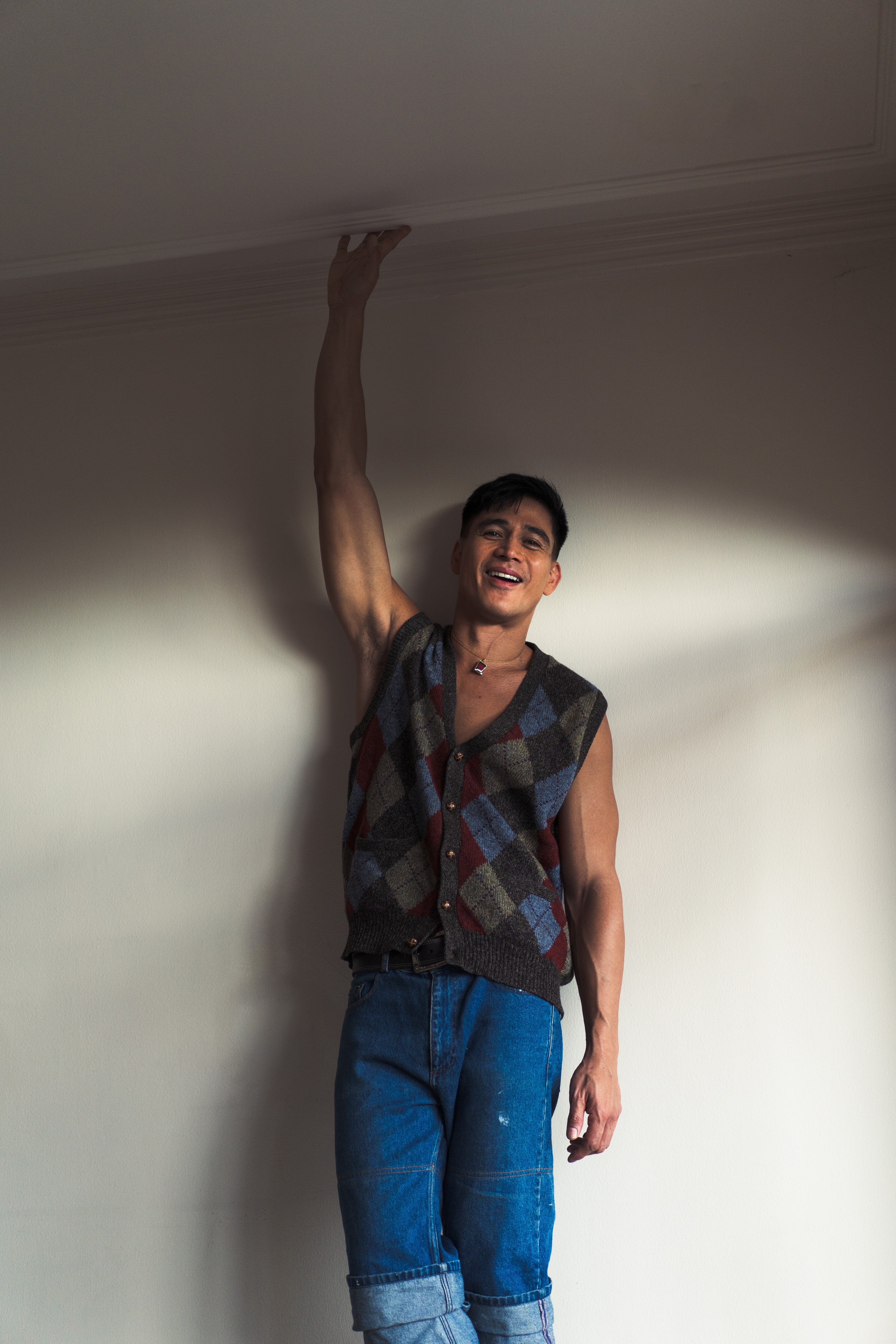
Photo by JL JAVIER
What are some of your major acting lessons from all these love teams that you've been in?
It's a constant practice of becoming better and just, you know, accepting yourself. Improving your craft. And, just being part of a love team requires a lot of respect — mutual respect. And, you gotta be on the same page with your partner so that, at least you say the same thing, you answer the same way, and you are as transparent and as candid and sincere and authentic as you can be. So yeah, with that you can never go wrong. But you have to be in that same safe space with your partner so that, you know, whatever conflict may arise, you can solve it together. You're not doing it on your own. Whatever you want to do, you have to consult your partner or, you know, vice versa. You have the same goal, and you have the same motivation.
But when personal issues arise, that's the thing that challenges because you have to deal with it. You have to solve it, and as much as possible, you don't want to do it in public. Because no matter what you do, good or bad, you're always at the losing end; people are going to talk about you, [and] people are going to judge you. And, yeah, it's not healthy. So, if you were to ask me, one of the things I learned is that to not, how should I say, not to include people that are not close to you if that's a personal issue, so at least you know where to draw the line.
Do you miss being in love teams?
No, not at all. I mean, you know, I'm so happy that I'm not in a love team anymore. But, as I've said when you're starting out, you need that. But once you're out of it, then you're able to [do [projects like “Mallari”]. I think it's one of my first movies that I really built on my own. And it's a, I don't want to say it's a risk, but it's a privilege. At the same time, the pressure is on your shoulders.
But in terms of growth it's also nice to do other genres, to do other films that can help you grow and make you become a better actor. I guess in my mid-thirties I was thinking I already hit the glass ceiling in terms of the roles that I was doing because I was doing soaps, movies, left and right. I was a machine. A workhorse. I never stopped. So, at that point, I felt, you know, I've done so many things. I've done so many roles and I feel this is it for me.
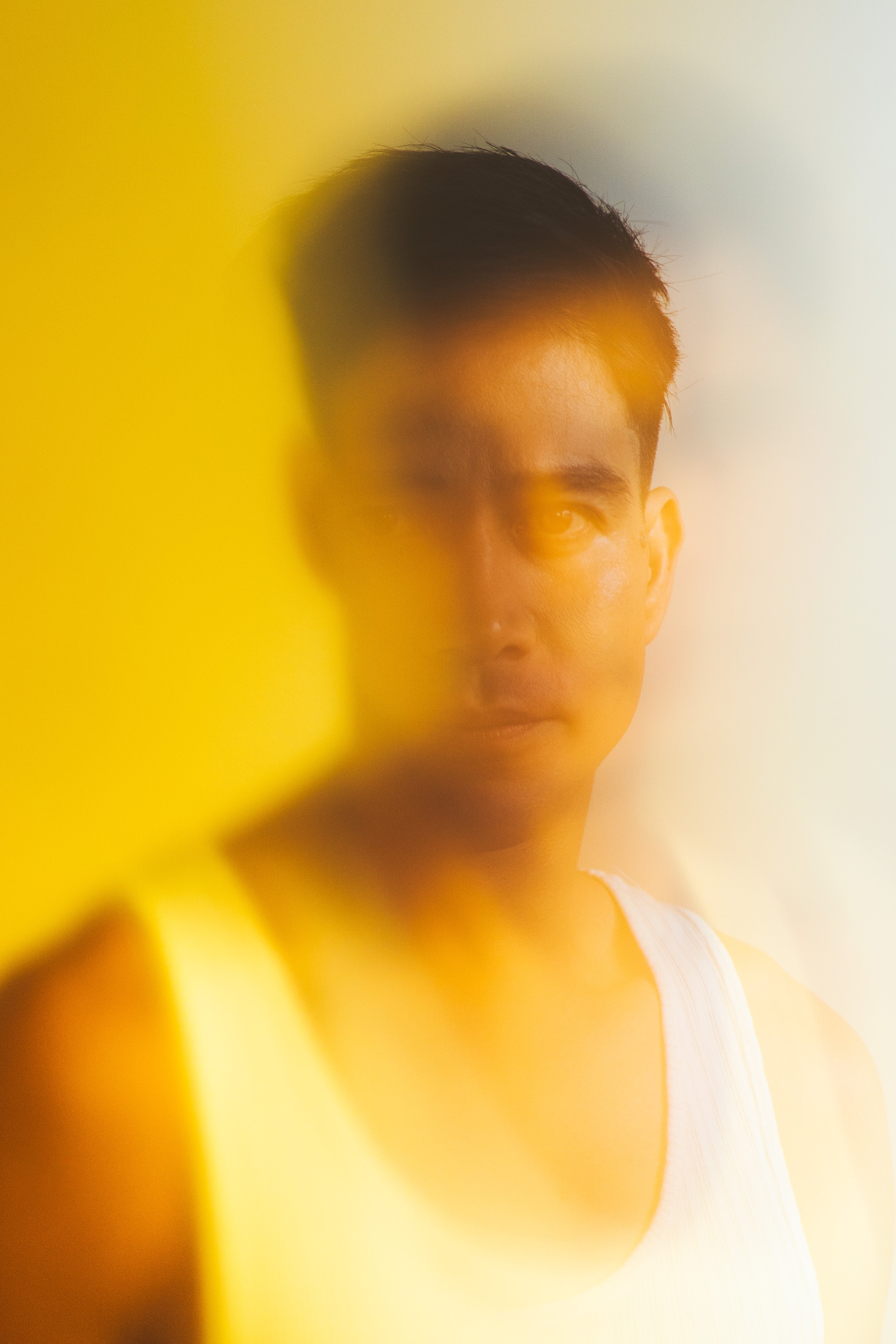
Photo by JL JAVIER
Especially if you're in a love team, you know, you're kind of stuck. So, when I realized that there's still a lot of things that I can do and work on, that's when I said you should never limit yourself. I mean with all the stories hovering around you, you can always pick up something new, something interesting. And I guess that's what happened to me last year, with all the roles that I took on from the musicals to the solo shows, solo concerts to the roles that I portrayed. It just kept coming and I'm happy.
Was there a particular moment that urged you to break out from the usual roles that you did?
No, I just felt it. I guess because I was nearing 40, so I was feeling the midlife crisis so to speak. There was no project in particular. I guess it's work in general that I was getting tired of because all I did was just work. Day in, day out, live shows, TV shows, films. That's when I felt that I'm not enjoying it anymore.
It took me probably six months or more or less a year to get a hold of myself — to realize that you should never limit yourself. You may be old, you may be young but if you're open to new learnings, if you're open to how else you can grow and what roles you can take on, then you won't feel the burnout. And that's where I'm at. Right now. That's why even if I had so much to do last year, even if I had to do four characters in one film, I didn't feel the exhaustion. I didn't get tired at all.
You are in this stage of your life where you’ve achieved so much but you're still going. What makes you say yes to a project now?
First of all, aside from the pay, I'm just kidding. [Laughs] It has to be something distinct. Something relevant and something that would challenge me and get me out of my comfort zone. When I said yes to “Ibarra,” I've not done a musical show. I've always wanted to do a musical show. So, when it landed in my lap… “Noli Me Tangere” was my favorite book in high school. So, I have a personal attachment [to] the novel. So, when it was pitched to me, I said yes right away.
When I took on “Ibarra.” I didn't accept any work. I checked myself into a hotel for one month. I just, uh, went full-on. With “Mallari,” it's the same thing. I got interested with the three roles after they pitched it. And I found out that it's a real character. Things like that, you know, make me wanna see for myself what else I can discover, what else I can do.
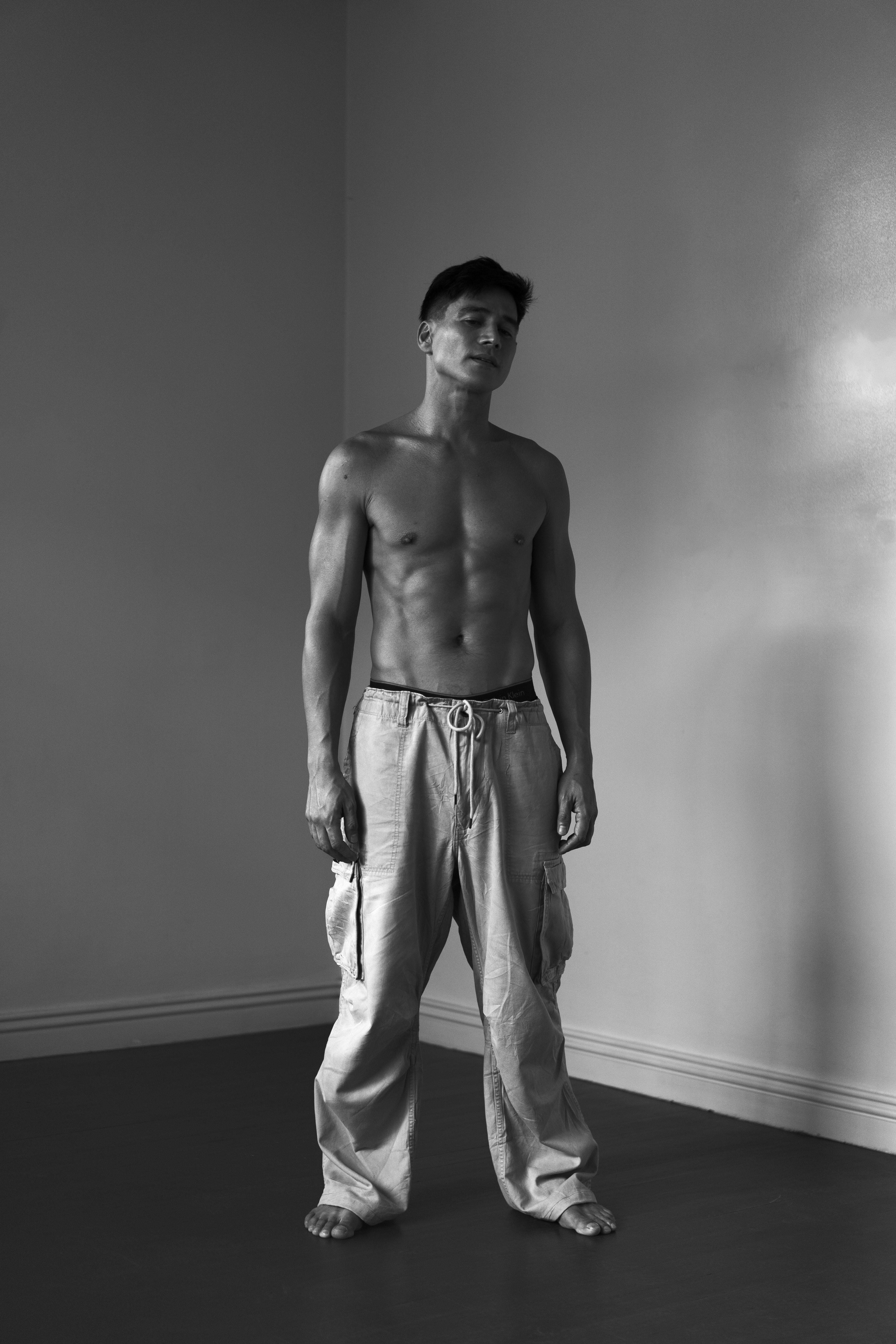
Photo by JL JAVIER
Sometimes, I accept roles that are [a walk in] the park just to pay the bills. Or just, uh, like, a favor for my friends. I remember “Gomburza” when Pepe Diokno called me up, I said I can't do it because I'm working on another film. To make the long story short, we were able to squeeze it in because it was a favor. Uh, and he said, “I cannot picture anybody else doing Pedro Pelaez.” So, same thing with “Mallari.” My director said, my producer said, “if you had said no then the movie would have been shelved.” So, sayang, diba?
I mean, this year we just made an announcement of the new show I'm doing. And I said a couple of years back that I'm not doing any more soap operas. And here I am doing another soap. So, I guess because I'm a sucker for good stories, I love, giving life to a character. And if that's something that I haven't done, I haven't seen in myself, then I'll do it.
"I hate doing things that make me feel I'm superior. I always want to learn from my co-actors and my collaborators. So that there's always room for improvement."
I always go in not knowing what to expect because I want to be surprised. I want to challenge myself. And I don't want to get ahead of myself. In “Mallari,” I had an acting coach and I was a clean slate. I didn't apply anything that I've learned through the years of acting. I just relied on her. I relied on my director. I hate doing things that make me feel I'm superior. I always want to learn from my co-actors and my collaborators. So that there's always room for improvement.
When [“On the Job”] was first pitched to me by Erik Matti, it went through several actors. It went through several studios because ABS[-CBN] wouldn't allow me to do a film outside of ABS back then. So, long story short, when I got wind of the film being done with another set of actors, I called up my manager. I said, no, I wanna do that film. You have to make sure that I'm gonna do that film. Because direk Erik Matti pitched it to me and he said, I'm gonna do it. So, I pulled some strings, and yeah, lo and behold, I was able to snatch it back.
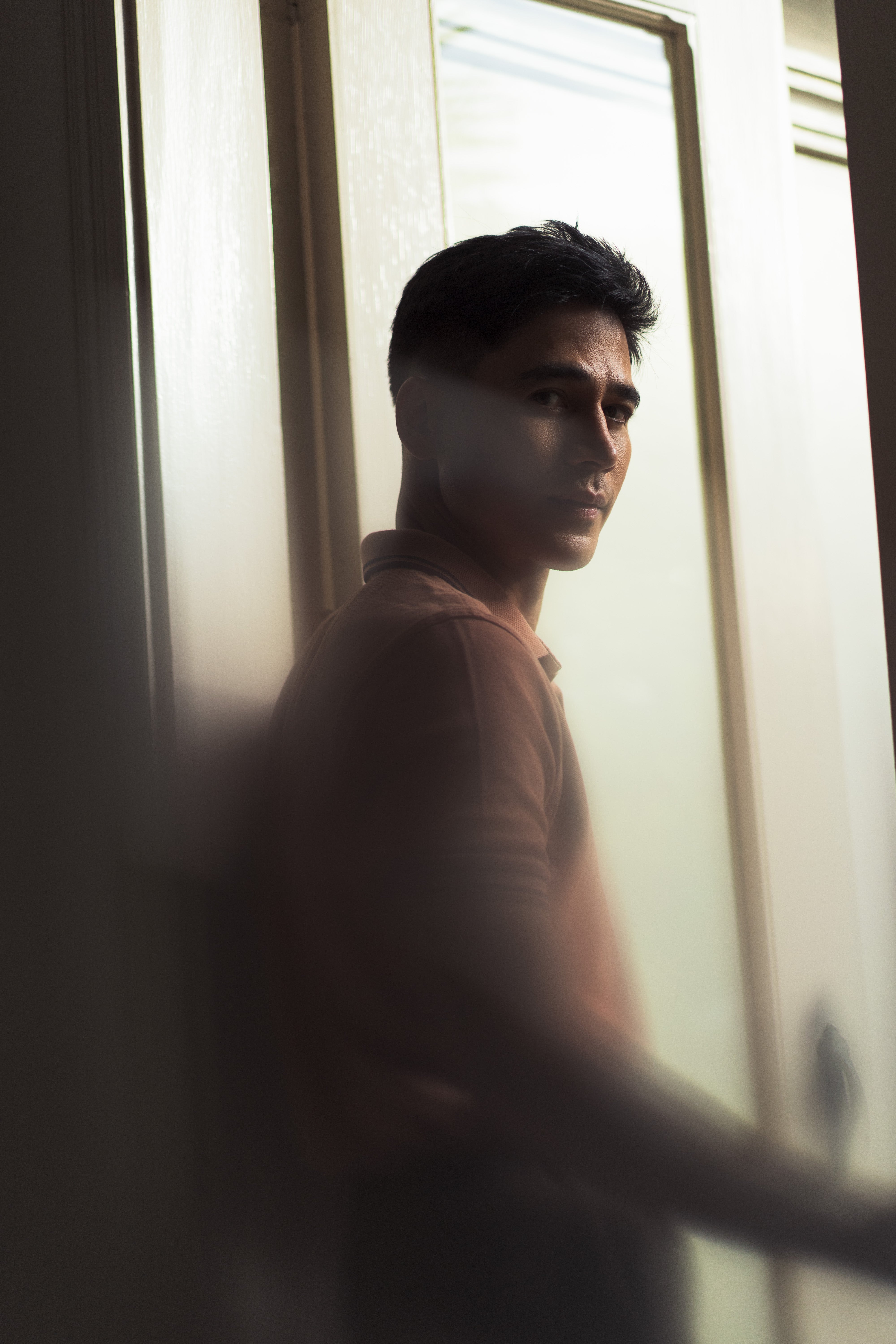
Photo by JL JAVIER
Was that the same situation with “Hele Sa Hiwagang Hapis?”
It's the same thing. Because ABS didn't want us — John Lloyd [Cruz] and I — to be in one film that is not ABS-CBN produced. So, when I found out that John Lloyd was already in Sorsogon, filming with Lav I said I [had] to be there. So, I insisted.
There are times you just don’t wanna miss out on a project. That was my first project with Lav and we did two more.
Early in your career you already earned a lot of accolades for playing Jules in “Dekada 70” and that’s been more than 20 years. That was such a landmark role. How does it feel to look back at that compared to now that you’re a producer.
It's a homecoming for me. And, yeah, that was my first experience wherein I felt I have a home. I have this thing that I can, uh, make money from. After “Dekada 70,” I felt more confident. I felt more comfortable being in showbiz. So yeah that was a milestone for me.
At the same time, uh, it's like coming in full circle. When I did the MMFF last year, after more than 20 years, it's nice to be back again, in the loop. But to see somebody else win, it's nice as well because it only means that, you know, it's not always about you. You know, we gotta give others a chance. So, it's humbling. And it's a nice feeling.
Can you elaborate more on what you said about not being comfortable in showbiz at that time?
Because I thought I was too shy and [I felt different] so I wanted to get out of my shell and just know myself and discover more about myself. So, because of those awards, I felt that, you know, I have a place and I have a family that really took care of me. So, yeah, you know, things like that pacify you and make you feel that, you know, you're doing okay. Because my mom was in the States, I was just on my own. So, everything that I was doing, I would always just talk to Mr. M (Johnny Manahan), the management, or ABS for that matter.
But until now, I am still shy. I get, uh, jitters, and whenever I have to talk or do public speaking, sometimes, I really have to prep myself and I have to calm myself down.
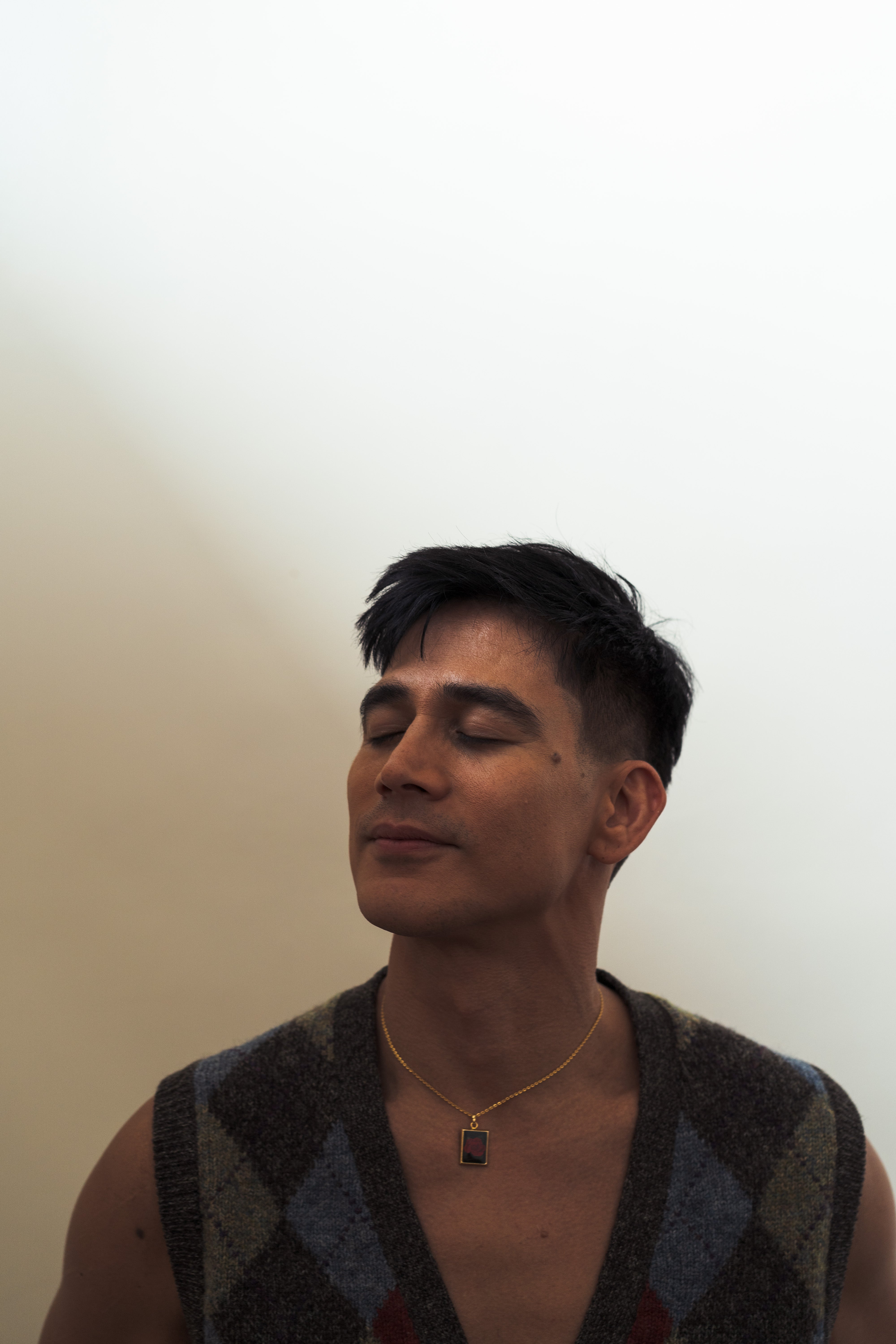
Photo by JL JAVIER
With Warner Brothers funding “Mallari,” and then you've had two Netflix productions, how do you think that bodes for Philippine cinema?
We're forging a path where we haven't gone [before] and it's good because that only means that we have what it takes to compete in the global market. And with Warner, Netflix, ABS, imagine without having a franchise and spearheading a show, producing a show, there's future in Philippine cinema, I would say. Because, we love to watch. We love to be entertained. And me being a part of this of this industry at my tender age of 47 [Laughs] and being able to do the things that I enjoy doing, get paid doing it, it's high time that we not just risk, but, uh, explore and support each other, discover what else we can do to better present Philippine cinema.
We have the festival happening in LA, showcasing Filipino films [at the] Chinese Theater. So that only means that there's interest in Philippine content. This is the best time to do something different. This is the best time to think of something diverse and come up with historical films such as “Gomburza,” “Mallari,” or other films. It's time to explore some more and not be scared because if you know yet you have a good concept, if you have a good material that you can showcase to your audience, then no matter the outcome, you should feel good about it because your intention is there.
For me at this point of my career in my life, whatever I can do to support Philippine cinema, I'd gladly be part of it.
***
Photos by JL JAVIER
Styling by PAUL JATAYNA, assisted by BRUCE VENIDA
Grooming by DONNABELL MAGBOJOS
Sittings by SAMANTHA LEE
Cover design by THE PUBLIC SCHOOL MANILA
Produced by GABY GLORIA, GERIE MEDINA, and PAOLO LORENZANA

